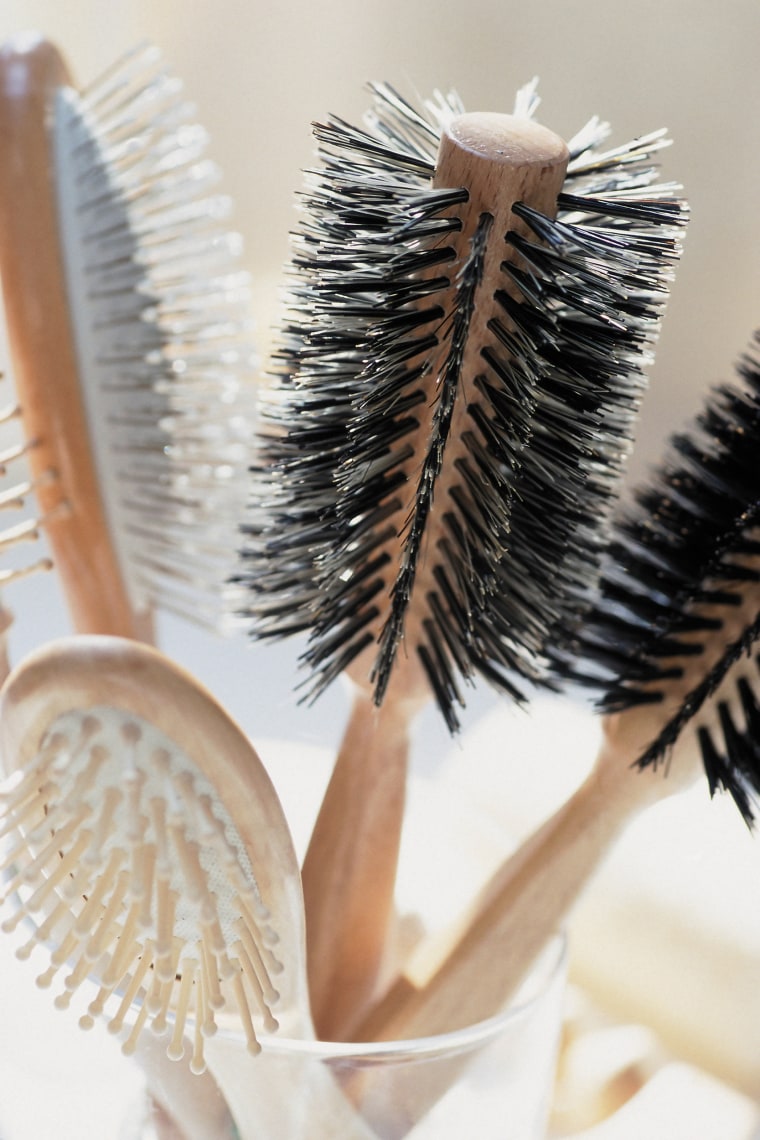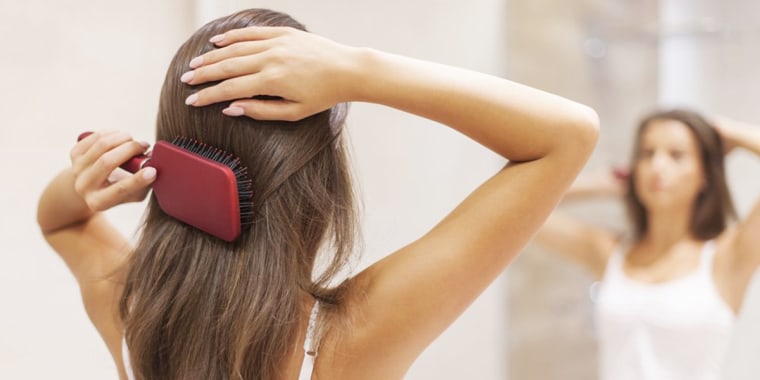There's arguably nothing you feel like you can't accomplish when you're having a good hair day.
But did you know the secret to lustrous hair all starts with having the right hairbrush? And once you have that hairbrush, it all comes down to taking care of it, and knowing when it's time to toss it.

A good rule of thumb is to change your brush every six months, said John Stevens, research and development lead of Goody Hair Products. If your brush's bristles are starting to separate or melt, or the bed is cracked, it may also be time to move on, he said.
"It depends on the condition of the brush. If the bristles are broken or bent, they can damage or rip the hair from the head," said Elisa Fitzpatrick, who's a senior stylist at SEVEN Salon in Seattle and a Mason Pearson brush expert. "When the bristles start to curl or go missing (it's) a pretty big sign that it is wearing down or needs to be replaced."
But to make sure you get the most out of your brush, there are a few things you should never do. Fitzpatrick advised avoiding the following: spraying or applying styling products directly to the hairbrush; soaking the brush in water or any other liquid; and using harsh detergents, ammonia or barbicide to clean and apply heat directly to the brush.
The No. 1 rule to get your brush to last? Make sure you clean it regularly.
"To extend the longevity of your brush’s lifespan, it’s best to remove the hair from it after each use and thoroughly clean it once a week," said Stevens, who recommends using the pointed end of a tail comb.
He added, "It’s also important to clean out your brush to keep your hair healthy and safe. Buildup in a brush isn’t just dead hair; it can contain dust, bacteria and hair product. If you don’t clean out your brush, you may run the risk of transferring this buildup back into your hair and scalp."
Fitzpatrick mentioned you can also use a cleaning brush like Olivia Garden Brush Cleaner.
Every so often, clean the brush with mild shampoo and warm water, suggested Fitzpatrick. Lay the brush on its bristles to dry as this will allow the water to drain properly rather than getting trapped in the brush, which can cause mold.
"Ultimately, a great, well taken care of brush can be really helpful to hair health," said Fitzpatrick, who also recommends investing in quality products and not over brushing your hair.
